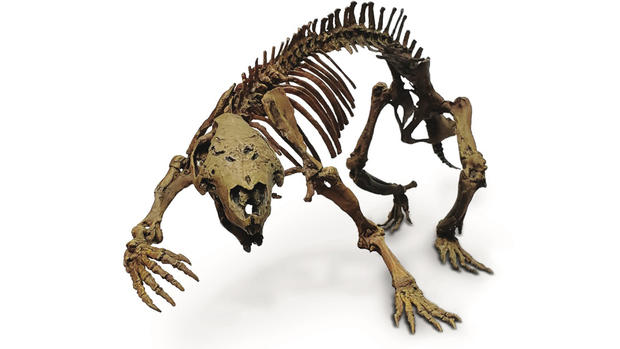Carnegie Museum Of Natural History Curator Announces Discovery Of 66-Million-Year-Old 'Crazy Beast' Fossil
PITTSBURGH (KDKA) - Dr. John Wible, the curator of mammals at the Carnegie Museum of History was part of a team that announced the discovery of a 66-million-year-old "crazy beast" fossil mammal skeleton.
Wible was joined by Dr. David Krause, senior curator of vertebrate paleontology at the Denver Museum of Nature and Science, and the duo made the announcement in the journal "Nature."
The fossil from Madagascar is now known as "Adalatherium" and it is an opossum-sized creature believed to may have weighed eight pounds.
The mammal belongs to an extinct group known as "gondwantherians" because they were known to inhabit the ancient southern supercontinent Gondwana. Fossils of these mammals have been found in Africa, India, the Antarctic Penninsula, and Madagascar.
Dr. Wible was able to study the skull and the bones and his analysis placed Adalatherium on the tree of life.
He describes the discovery as "an unprecedented opportunity to reconstruct the anatomy and lifeway of a gondwanatherian and to place it on the mammal tree of life."
The name "Adalatherium" or crazy beast comes from the Malagasy word for crazy, "adala" and the Greek word for beast "therium."
One of the features discovered by Dr. Wible was the fact that the mammal had more holes on its face than any known mammal. The holes served as passageways for nerves and blood vessels, including a very large hole on the top of its snout which has no comparison to any mammal living or extinct.




